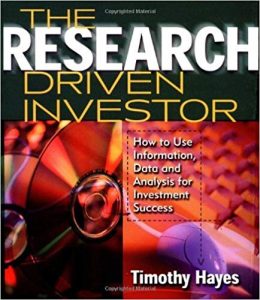What does the acronym opec stand for?: Understanding the WTO abbreviations
Interracial Relationships Famous people
November 24, 2022Free Russian Personal ads – Elena’s Models Review
November 25, 2022Contents:

In https://forexbitcoin.info/ 2003, the International Energy Agency and OPEC held their first joint workshop on energy issues. They have continued to meet regularly since then, “to collectively better understand trends, analysis and viewpoints and advance market transparency and predictability.” A newspaper headline in the foreground shows a story regarding a lack of heating oil in the community. The value of shares and ETFs bought through a share dealing account can fall as well as rise, which could mean getting back less than you originally put in. Ohio Prevention and Education Conference is a medical conference held at Ohio, United States. The goal of OPEC is to revitalize and build on the existing capacity of Ohio’s prevention workforce to enhance the delivery of evidence-based prevention strategies in the places where people work, live, learn, and recreate.

- OPEC faces considerable challenges from innovation and new, green technology.
- North Sea Brent Crude Oil is the leading benchmark for Atlantic basin crude oils, and is used to price approximately two-thirds of the world’s traded crude oil.
- You might also like some similar terms related to OPEC to know more about it.
- He currently researches and teaches economic sociology and the social studies of finance at the Hebrew University in Jerusalem.
Estimates, released in September 2018, claim that 44% of global oil production and 81.5% of the world’s ‘proven’ oil reserves are accounted for by OPEC. OPEC’s main goal is to maintain oil prices at a profitable level for its members while keeping the market as free as possible from restrictions. The organization ensures its members receive a steady stream of income from an uninterrupted supply of oil. As a cartel, OPEC members have a strong incentive to keep oil prices as high as possible while maintaining their shares of the global market. Because its member countries hold the vast majority of crude oil reserves (80.4%, according to the OPEC website), the organization has considerable power in these markets.
The Meaning of OPEC
This combination of forces prompted a sharp rise in oil prices to levels far higher than those previously targeted by OPEC. By the time of the 2011 Libyan Civil War and Arab Spring, OPEC started issuing explicit statements to counter “excessive speculation” in oil futures markets, blaming financial speculators for increasing volatility beyond market fundamentals. OPEC often has difficulty agreeing on policy decisions because its member countries differ widely in their oil export capacities, production costs, reserves, geological features, population, economic development, budgetary situations, and political circumstances. Indeed, over the course of market cycles, oil reserves can themselves become a source of serious conflict, instability and imbalances, in what economists call the “natural resource curse”.
As a result, worldwide how can forex trade for beginners production increased and prices dropped significantly, leaving OPEC in a delicate position. In July 2021, OPEC+ member United Arab Emirates rejected a Saudi proposed eight-month extension to oil output curbs which was in place due to COVID-19 and lower oil consumption. The previous year, OPEC+ cut the equivalent of about 10% of demand at the time.
A cartel is an organization created between a group of producers of a good or service to regulate supply and manipulate prices. Oil prices continued to experience volatility, leading OPEC to adjust production levels to 7.2 million barrels per day as of January 2021. The term Organization of the Petroleum Exporting Countries refers to a group of 13 of the world’s major oil-exporting nations.
The oil market was tight in the early 1970s, which reduced the risks for OPEC members in nationalizing their oil production. One of the major fears for OPEC members was that nationalization would cause a steep decline in the price of oil. This prompted a wave of nationalizations in countries such as Libya, Algeria, Iraq, Nigeria, Saudi Arabia and Venezuela. With greater control over oil production decisions and amid high oil prices, OPEC members unilaterally raised oil prices in 1973, prompting the 1973 oil crisis.
present global energy crisis
Despite opposition from the United States, Saudi Arabia – together with Arab and non-Arab producers – formed the Organisation of Petroleum Export Countries to ensure the best price available for their exports. The HQ was originally in Geneva, Switzerland after Venezuela asked for a more neutral location, but then moved to Vienna, Austria, after Switzerland declined to extend diplomatic privilege in 1965. There are several advantages of having a cartel like OPEC operating in the crude oil industry.

Since the 1980s, representatives from Egypt, Mexico, Norway, Oman, Russia, and other oil-exporting nations have attended many OPEC meetings as observers. This arrangement serves as an informal mechanism for coordinating policies. One petroleum barrel is approximately 42 U.S. gallons, or 159 liters, or 0.159 m3, varying slightly with temperature. To put the production numbers in context, a supertanker typically holds 2,000,000 barrels , and the world’s current production rate would take approximately 56 years to exhaust the world’s current proven reserves. In December 2019, OPEC and Russia agreed one of the deepest output cuts so far to prevent oversupply in a deal that will last for the first three months of 2020.
Translate Organization of Petroleum Exporting Countries to other language.
OPEC decided to maintain high production levels and consequently low prices as of mid-2016, in an attempt to push higher-cost producers out of the market and regain market share. However, starting in January 2019, OPEC reduced output by 1.2 million barrels a day for six months due to a concern that an economic slowdown would create a supply glut, extending the agreement for an additional nine months in July 2019. In a series of steps in the 1960s and 1970s, OPEC restructured the global system of oil production in favor of oil-producing states and away from an oligopoly of dominant Anglo-American oil firms . Coordination among oil-producing states within OPEC made it easier for them to nationalize oil production and structure oil prices in their favor without incurring punishment by Western governments and firms. Prior to the creation of OPEC, individual oil-producing states were punished for taking steps to alter the governing arrangements of oil production within their borders. In 1960, government representatives from Iran, Iraq, Kuwait, Saudi Arabia and Venezuela met in Baghdad to discuss methods to increase the price of crude oil produced by their countries, and to respond to the actions of the multinational oil companies who had been unilaterally reducing their prices.
273,753,1911,904,569833,6673,692,500,000QatarMiddle East1961–20192,688,23511,4371,522,90225,244,000,000For countries that export petroleum at relatively low volume, their limited negotiating power as OPEC members would not necessarily justify the burdens imposed by OPEC production quotas and membership costs. Ecuador withdrew from OPEC in December 1992, because it was unwilling to pay the annual US$2 million membership fee and felt that it needed to produce more oil than it was allowed under its OPEC quota at the time. Ecuador then rejoined in October 2007 before leaving again in January 2020.
Despite popular sentiment against OPEC, legislative proposals to limit the organization’s sovereign immunity, such as the NOPEC Act, have so far been unsuccessful.

It was founded in 1960 in Baghdad by the first five members , and headquartered in Vienna, Austria. OPEC hosts regular meetings among the oil ministers of its Member Countries. The members of OPEC are Algeria, Angola, Ecuador, Equatorial Guinea, Gabon, Iran, Iraq, Kuwait, Libya, Nigeria, Qatar, Republic of the Congo, Saudi Arabia, the United Arab Emirates, and Venezuela. This dictionary definitions page includes all the possible meanings, example usage and translations of the word opec. In United Nations publications, a list of abbreviations and acronyms, if required, is normally included in the explanatory notes.
OPEC was founded in 1960 to coordinate the petroleum policies of its members and to provide member states with technical and economic aid. North Sea Brent Crude Oil is the leading benchmark for Atlantic basin crude oils, and is used to price approximately two-thirds of the world’s traded crude oil. Other well-known benchmarks are West Texas Intermediate , Dubai Crude, Oman Crude, and Urals oil.
Cabinet reshuffle: How energy has become a standalone government department as UK crises have come and gone – Sky News
Cabinet reshuffle: How energy has become a standalone government department as UK crises have come and gone.
Posted: Tue, 07 Feb 2023 08:00:00 GMT [source]
OPEC faces considerable challenges from innovation and new, green technology. High oil prices are causing some oil-importing countries to look to unconventional—and cleaner—sources of energy. These alternatives, such as shale production as an alternative energy source, and hybrid and electric cars that reduce the dependence on petroleum products, continue to put pressure on the organization. In October 2022, key OPEC+ ministers agreed to oil production cuts of 2 million barrels per day, the first production cut since 2020. Leading up to his August 1990 Invasion of Kuwait, Iraqi President Saddam Hussein was pushing OPEC to end overproduction and to send oil prices higher, in order to help OPEC members financially and to accelerate rebuilding from the 1980–1988 Iran–Iraq War. But these two Iraqi wars against fellow OPEC founders marked a low point in the cohesion of the organization, and oil prices subsided quickly after the short-term supply disruptions.
Carlos arranged bus and plane travel for his team and 42 of the original 63 hostages, with stops in Algiers and Tripoli, planning to fly eventually to Baghdad, where Yamani and Amuzegar were to be killed. All 30 non-Arab hostages were released in Algiers, excluding Amuzegar. Additional hostages were released at another stop in Tripoli before returning to Algiers. With only 10 hostages remaining, Carlos held a phone conversation with Algerian president Houari Boumédiène, who informed Carlos that the oil ministers’ deaths would result in an attack on the plane.
A previous embargo attempt was largely ineffective in response to the Six-Day War in 1967. However, in 1973, the result was a sharp rise in oil prices and OPEC revenues, from US$3/bbl to US$12/bbl, and an emergency period of energy rationing, intensified by panic reactions, a declining trend in US oil production, currency devaluations, and a lengthy UK coal-miners dispute. US gas stations limited the amount of gasoline that could be dispensed, closed on Sundays, and restricted the days when gasoline could be purchased, based on license plate numbers.
